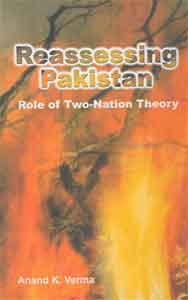Now the Sunnis are demanding declaration of Shias as nonMuslims. The Zakat funding of Madrassas in Punjab increased from Rs. 9.4 million in 1980-81 to Rs. 68.96 million in 1986-87, their number going up from 636 to 2084 in the same period. A student of 5th class, apart from knowledge of Koran was expected to state clearly the differences between a Muslim and a Hindu.
The pictorial aid for teaching alphabets at the primary level had ‘kaf and ‘zoye’ standing for Kafir and Zalim respectively, with illustrative pictures of a Hindu Pandit and turbaned Sikh respectively. The virus of hatred was not only kept flourishing, but its scope was also being extenaed. The Blasphemy Law against religious minorities was another benchmark in this murky exercise.
The presence in neighbouring Afghanistan of the Taliban who accept no moderation and who have spawned a new form of Islamic extremism constitute a danger to all countries in the region. The Taliban believe that their Jehad brought down to its knees one super power
Zia’s policies have made the orthodox groups an integral part of the political parameters of the country even though their public support has not grown. The civilian governments that followed Zia’s regime have had to go along with the Shariatised polity. During her second stint as Prime Minister (1993 October to 1996 November) Benazir Bhutto had tried to amend the Blasphemy Law but the effort had to be abandoned following intense opposition.
General Parvez Musharraf who seized power through a coup on October 12, 1999 twice had to bow down to pressures from the religious groups, first when he withdrew the amendments to this very law, and second, when he amended the Provincial Constitution Order 2000, by restoring all the Islamic features of the 1973 Constitution that had been dropped after his coup. His directives to the Madrassas to fill up a questionnaire seeking statistical data have been treated with contempt, suggesting that Islamic might is now stronger than the might of the Armed Forces in Pakistan.
The presence in neighbouring Afghanistan of the Taliban who accept no moderation and who have spawned a new form of Islamic extremism constitute a danger to all countries in the region. The Taliban believe that their Jehad brought down to its knees one super power, the Soviet Union. They have strong links with fundamentalist organisations in Pakistan and together they dream of creating a new Ummah across the world, much in the image of what the Muslims achieved in the 7th and 8th centuries. In 1988, the Taliban Supremo Mullah Omar had declared support for Jehad in Kashmir.
 General Musharraf has echoed the same thought later, converting Jehad over Kashmir into state policy. Volunteers for Jehad are training at several centres, the most notable of which are Darool-ul-uloom, Haqqania of Maulana Samiul Huq and Muridke, head quarters of Lashkar-e-Toiba. Samiul Huq would like to lay his hands on a nuclear bomb if he can get it, no doubt to carry forward his aim of a Muslim International through an Islamic bomb. The animus, nurtured by the two-nation theory, has been taken to monumental heights by its succeeding Avatar, the Ideology of Pakistan.
General Musharraf has echoed the same thought later, converting Jehad over Kashmir into state policy. Volunteers for Jehad are training at several centres, the most notable of which are Darool-ul-uloom, Haqqania of Maulana Samiul Huq and Muridke, head quarters of Lashkar-e-Toiba. Samiul Huq would like to lay his hands on a nuclear bomb if he can get it, no doubt to carry forward his aim of a Muslim International through an Islamic bomb. The animus, nurtured by the two-nation theory, has been taken to monumental heights by its succeeding Avatar, the Ideology of Pakistan.
NOTES
- Fatahyab Ali Khan: 'Objective of Pakistan Movement', Islamabad Daily, Muslim, May 4, 1984, as quoted by Saroosh Irfani, 'The Progressive Islamic Movement', ed. Asghar Khan, p. 62.
- From a broadcast to USA, recorded in Feb 1948, quoted in F Ali Khan, 'Objective'.
- K Bahadur: 'The Jamait-I-Islami' of Pakistan, Lahore, Progressive Books, 1978, p. 50, as quoted by Abbas Rashid, 'Pakistan, The Ideological Dimension, p. 83, ed. Asghar Khan.
- Ardeshir Cowasji: Frontier Post, July 4-5, 2000, as quoted in Pot of August 1, 2000, p. 3160.
- Feroze Ahmed: 'Pakistan's Problems of National Integration', p. 229, ed. Asghar Khan.
- Percival Spear: 'A History of India' p. 235, as quoted by Blinkenberg, p.44.
- Sisir Gupta: op cit, p. 45, as quoted by Blinkenberg p. 52.
- Azhar Hamid: et al 'Mutalliyah-I-Pakistan', (Islamabad, Allama Iqbal Open University, 1983), p. 32, as quoted in 'Islam, Politics and State', ed. Asghar Khan, p. 175.
- Parvez Amir Ali Hoodbhoy and Abdul Hamid Nayyar: 'Rewriting History of Pakistan', p. 165, Asghar Khan et aL
- Hasan"Askari Rizvi: 'Military, State and Society Pakistan', Macmillan Press Ltd. 2000, p. 181.




